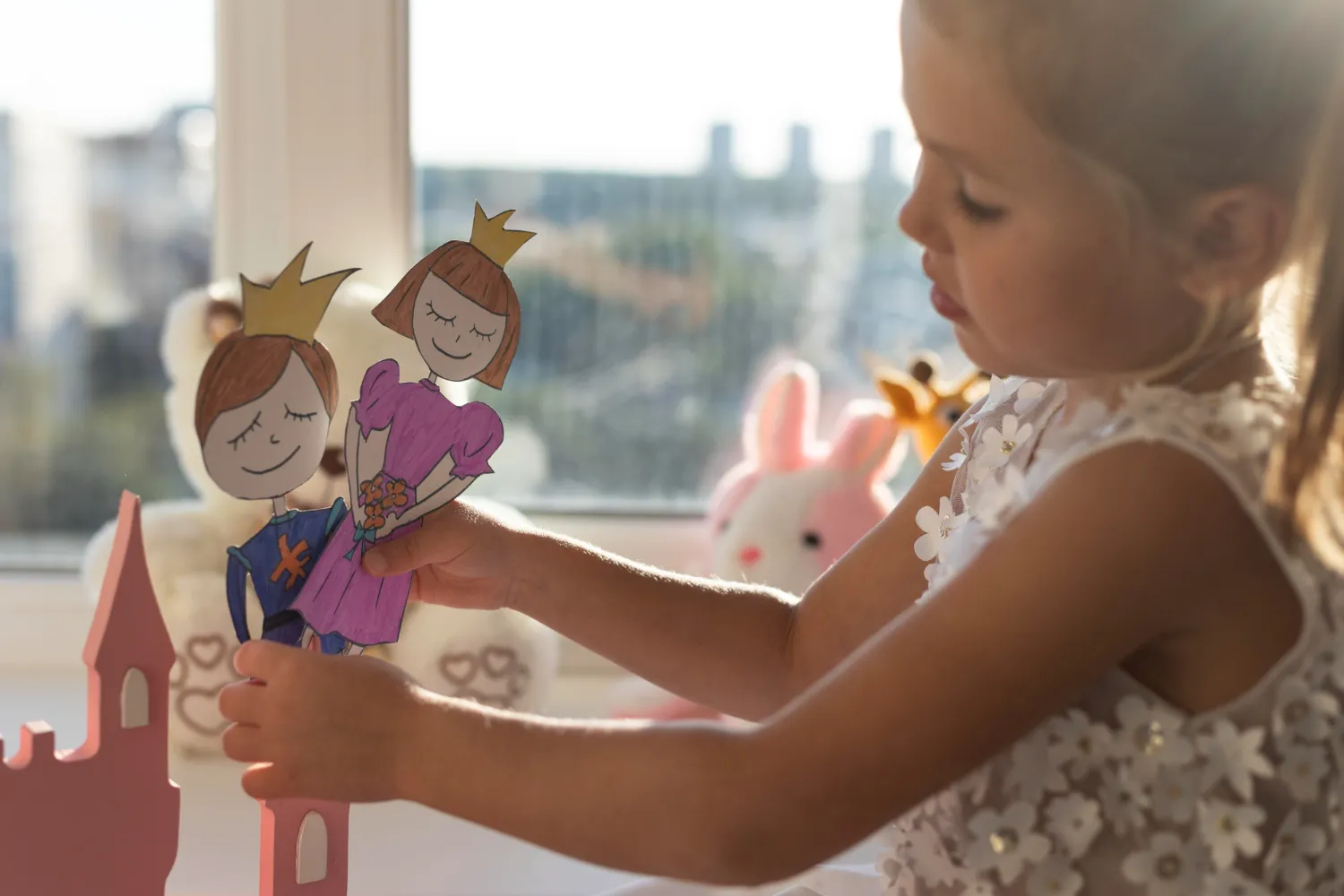There was a time when a cardboard box turned into a spaceship. A rod became a sword. A puddle turned into ocean with sea monsters in it. Those who have observed children playing have witnessed that magic can happen inside them. In a way, everything goes in their world and that is not only fun, but also important.
Fantasy does not only imply fairies, dragons and castles of a rainbow color. The point is in the fact that dreams and imagination are a natural feature of this child. And it totally influences the way they develop, thoughts and emotions.
Let’s see why a little fantasy goes a long way in helping children become confident, creative, and caring people
Imagination is a Child’s Superpower
children can begin fantasizing with nearly nothing. Stick a blanket on them and they make think it is a flying carpet. Hand them a rock and they will tell it is a magic crystal. They create new worlds, solve problems, handle challenges, and experiment with different roles through fantasy. They may be heroes, helpers or even friendly monsters.
All this pretend play is accomplished quite a lot: it is teaching them about the world around them and how they are part of that world.
They have power of imagination. It is a world where children are frequently short and not in full control, fantasy makes them feel bold, significant and uninhibited.
Fantasy Helps with Big Feelings
Emotions are difficult. Children may not necessarily have the right words to say, “I am lonely, or I am fearful.” There are times when they hear how a unicorn was lost or about a small adventurous explorer and they recognize their emotions differently.
Fantasy provides children with a secure ground to indulge fear, anger, sadness and happiness. They can discover what it is to be kind, to be forgiving, to keep trying or make a courageous decision through play-act stories and games.
A child playing a superhero who helps his or her friend is not doing this to pass some time, but to understand how to take care, protect, and be strong towards other people.
Learning Through Make Believe
Fantasy assists the brain. Children learn to plan, think ahead, decide and talk differently, when they engage in pretending. This is coupled with them appearing to be simple fun.
They equally learn social skills. When they are interacting with friends, they are taught to share, listen and cooperate to create the story. Such small experiences make children become lovely friends, good team players, and considerate individuals.
Lastly, fantasy increases creativity. Imagination works to make children think out of the box or literally. This kind of thinking will assist them in getting solutions in their studies and life.
Why Adults Say “Yes” to Fantasy
In the contemporary environment of screens, tight schedules, and school pressure, children require space where they can dream. Imagination is something we tend to lose as an adult. We can say to them, be realistic, stop daydreaming, etc, and in doing so we might deprive them of something very valuable.
This is the way we may support fantasy in our gameday:
- Tell magical stories before bed. Dragons, stars, secret doors make it all count.
- Encourage dress-up play. Make them knights, mermaids or talking animals.
- Ask creative questions like “What if your teddy bear could talk?” or “Where would you go on a magic flying carpet?”
- Join their games without trying to control them. Be their wizard pal, or prince or princess request.
- Give them time and space to play without too many rules or screens.
Fantasy does not require expensive toys and applications. A child’s mind has already got the magic then it is waiting to come out.
Every Great Story Begins with a Dream
Childhood is short and special. It is the moment when the difference between real and pretend is soft, colorful and full of opportunities.
By allowing the imagination of children to run riot we enable them to spread their roots and their wings–their roots deep down in the soil of affection and security and the freedom of muse and emotion.
That way, when your kid tells you that his sandwich is a treasure map or informs you that he or she spotted a unicorn in the garden, just smile and go with the flow.
Since currently, they are not even pretending.
They’re learning. They’re growing. And they create a story that could possibly determine who they will be.
